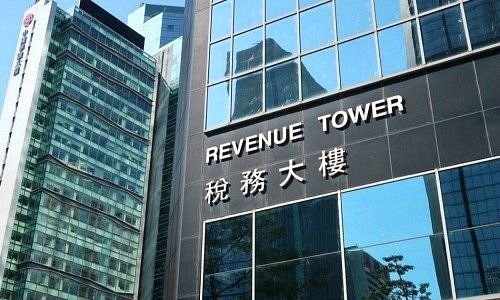How to Handle Tax Enquiries from the Inland Revenue Department
Hong Kong tax is not always as straightforward as one may think. It is not uncommon for corporate or individual taxpayers to receive tax enquiries from the Hong Kong Inland Revenue Department (IRD) or have tax disputes on various tax issues, such as:
- entitlement of offshore non-taxable claims
- tax exemption claims on business/individual income
- deductibility of expenses
- validity of (late) objections against tax assessments
- eligibility to the Certificate of Resident Status (CoR) issued by the IRD
- the legitimacy of exchange of information (EoI) between the IRD and foreign tax authorities
Disputes on treatment of income and expenses
After filing profits or individual tax returns, the IRD may issue enquiry letter(s) to corporate or individual taxpayers, in which detailed information and supporting documents are requested to ascertain the validity of the non-taxable claim on income and/or deduction claim on expenses.
Income claimed as non-taxable will likely be reviewed by the IRD. It generally includes but is not limited to, offshore-sourced business income, employment remuneration or director’s fees, certain compensation income, investment gains, investment income and debt waiver gains.
Expenses potentially subject to the IRD’s review include but are not limited to management fees, commission fees, consultancy service fees, bad debt expenses and interest expenses.
The chance of the IRD’s enquiries is higher relatively if the amount involved is significant and/or received from or paid to overseas affiliated parties.
Replying to IRD tax enquiries
After receipt of the enquiry letters, taxpayers are obliged to make a reply to it. Otherwise, the IRD will disallow taxpayers’ tax claims.
The IRD generally takes about 2 to 8 months to review the reply, depending on the length of enquiries and complexity of the tax issues involved.
In case the IRD is not satisfied with the reply, it will either raise follow-up questions or disallow the tax claims. If the latter happens, taxpayers can choose to lodge an appeal to the Commissioner of Inland Revenue, the Board of Review (i.e. a tax tribunal) and Courts for judgement.
It should be noted that Hong Kong adopts an ‘Assess First Audit Later’ system. That is, the IRD in general issues tax assessments and tax bills to taxpayers for tax payment first, based on the profits and individual tax returns filed.
However, the IRD’s issuance of a tax assessment or statement of loss does not mean that a taxpayer’s tax position has been finalised and agreed by IRD. Pursuant to the 6-year time bar period under Hong Kong tax, the IRD is empowered to raise queries and issue (additional) tax assessments to a taxpayer within 6 years after the end of the year of assessment concerned.
Application for Certificate of Resident Status (CoR)
The IRD has been more and more stringent when assessing an application for the CoR. Unless one has strong grounds and is able to provide comprehensive information together with supporting documents when making an application with the IRD, applicants often receive enquiry letter(s) from the IRD for further detailed information and documents.
Specifically, the IRD generally enquires extensively
- whether and what management and control functions of the applicant take place in Hong Kong; and
- whether and what substance and business activities of the applicant are maintained/carried out in Hong Kong.

Exchange of Information (EoI)
Pursuant to the Hong Kong double tax agreements (DTAs) entered into between Hong Kong and foreign tax jurisdictions, taxpayers’ information can potentially be disclosed by the IRD to foreign tax authorities on request basis, provided that the conditions for the EoI can be met.
For the purpose of the EoI, the IRD may request corporate/individual taxpayers to provide certain information and documents, such as details of (personal) assets/properties/bank accounts and bank/security statements.
How to attend to IRD tax enquiries
We provide below some inputs for addressing IRD enquiries:
- It is suggested to know
- the reason(s) why the IRD initiates the tax enquiries;
- the tax issue(s) concerned by the IRD; and
- the resulting tax consequences or effects upon receipt of the enquiry letter from the IRD.
- It is necessary to know whether the enquiries are raised by the IRD’s general assessment team or tax audit and investigation team. For the latter, it is expected that the IRD will conduct a more stringent, thorough and detailed review and examination of taxpayer’s various tax issues and aspects for the purpose of ascertaining its tax position, including but not limited to whether any income has been under-reported and/or any expenses have been over-claimed for tax deduction.
- The reply in response to the IRD’s enquiries has to be prepared with care and strategies. It is recommended to analyse the merits and defects of the tax claims involved and think about how to make a good presentation, including the favourable information and documents, to the IRD.
In addition, it is suggested to carefully review the information and supporting documents, such as the breakdown, (email) correspondences, contracts and transaction documents, before submission to the IRD. Supply of any unfavourable or inconsistent information might potentially result in further enquiries from the IRD on that or other tax issues and/or denial of the tax claims by the IRD.
- The information and documents requested by the IRD sometimes may be irrelevant or unnecessary for assessing a tax position. Hence, one has to think whether, what and to what extent certain information and documents should be supplied to the IRD.
- Due to the 6-year time bar period as mentioned above, taxpayers are recommended to maintain well their relevant information and documents for addressing the possible enquiries from the IRD.
- In order to strengthen the tax claims, such as non-taxable claims on income, deduction claims on expenses and application for the CoR, it is suggested to provide the relevant favourable legal grounds and arguments as well as case laws, if applicable, to the IRD as support.
- As mentioned above, the EoI can take place only if the conditions under the relevant laws and DTAs can be met. Hence, it is suggested to research whether all the required conditions have been met so that the EoI can actually take place, before supplying the requested information and documents to the IRD. One may also try to raise questions to the IRD regarding the legal basis of the EoI.
- Usually, the IRD requests taxpayers to submit a reply to its enquiry letter on or before a prescribed day. Taxpayers may apply for an extension of time to file the reply if they need more time to prepare the reply.
HKWJ Tax Law can help
Replying to IRD enquiries has to be handled with great care and strategies. Provision of unfavourable or inconsistent information to the IRD may not only render the tax claims fail but also potentially result in IRD enquiries on a further tax probe such as a full tax audit and investigation.
In order to protect the tax benefits and strategically attend to IRD enquiries, it is recommended to engage a competent and experienced tax lawyer/consultant. At HKWJ Tax Law & Partners Limited we have successfully handled multiple cases regarding IRD enquiries.
Do you need support with IRD enquiries? Please feel free to contact us via the form below for tax assistance.






